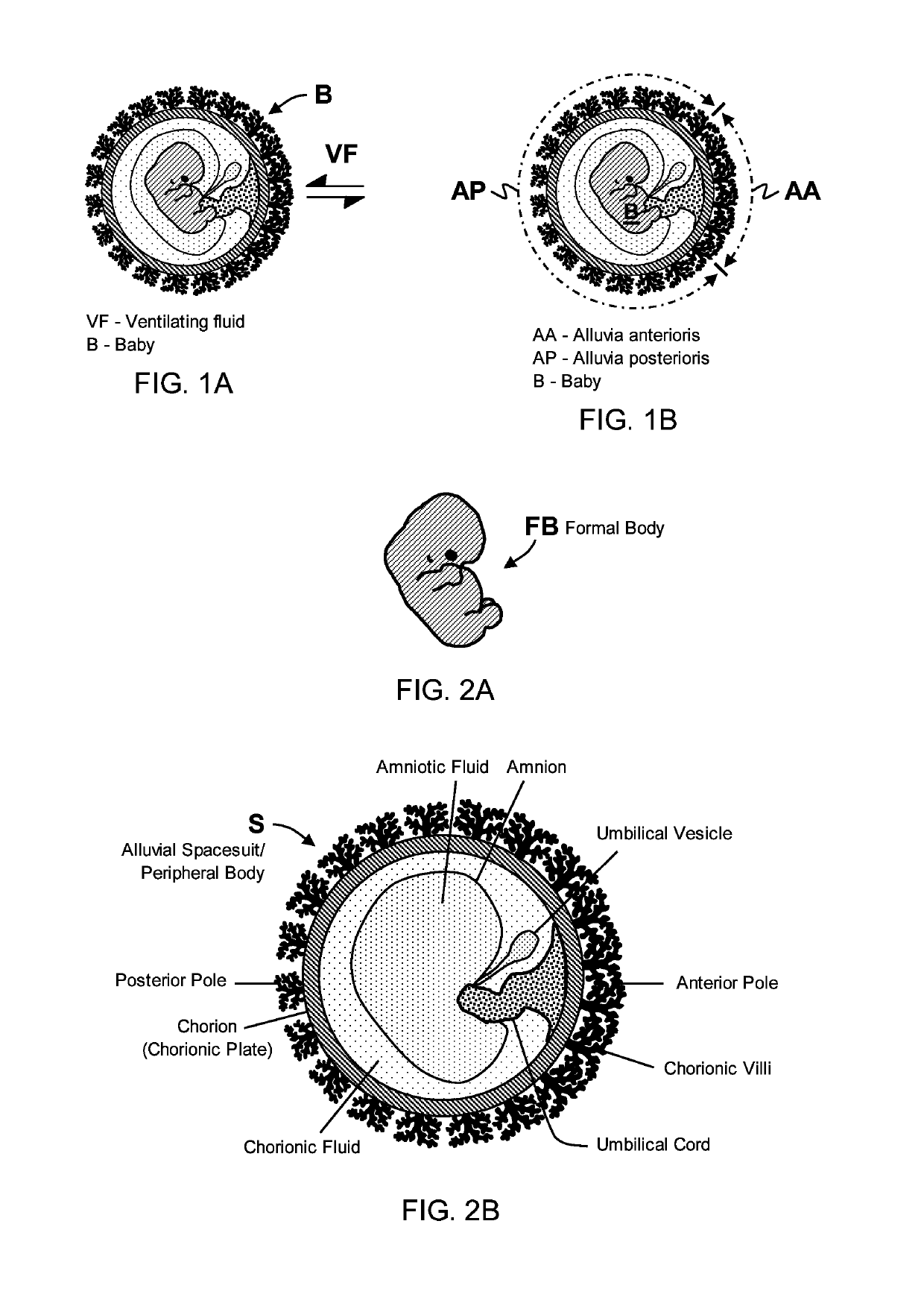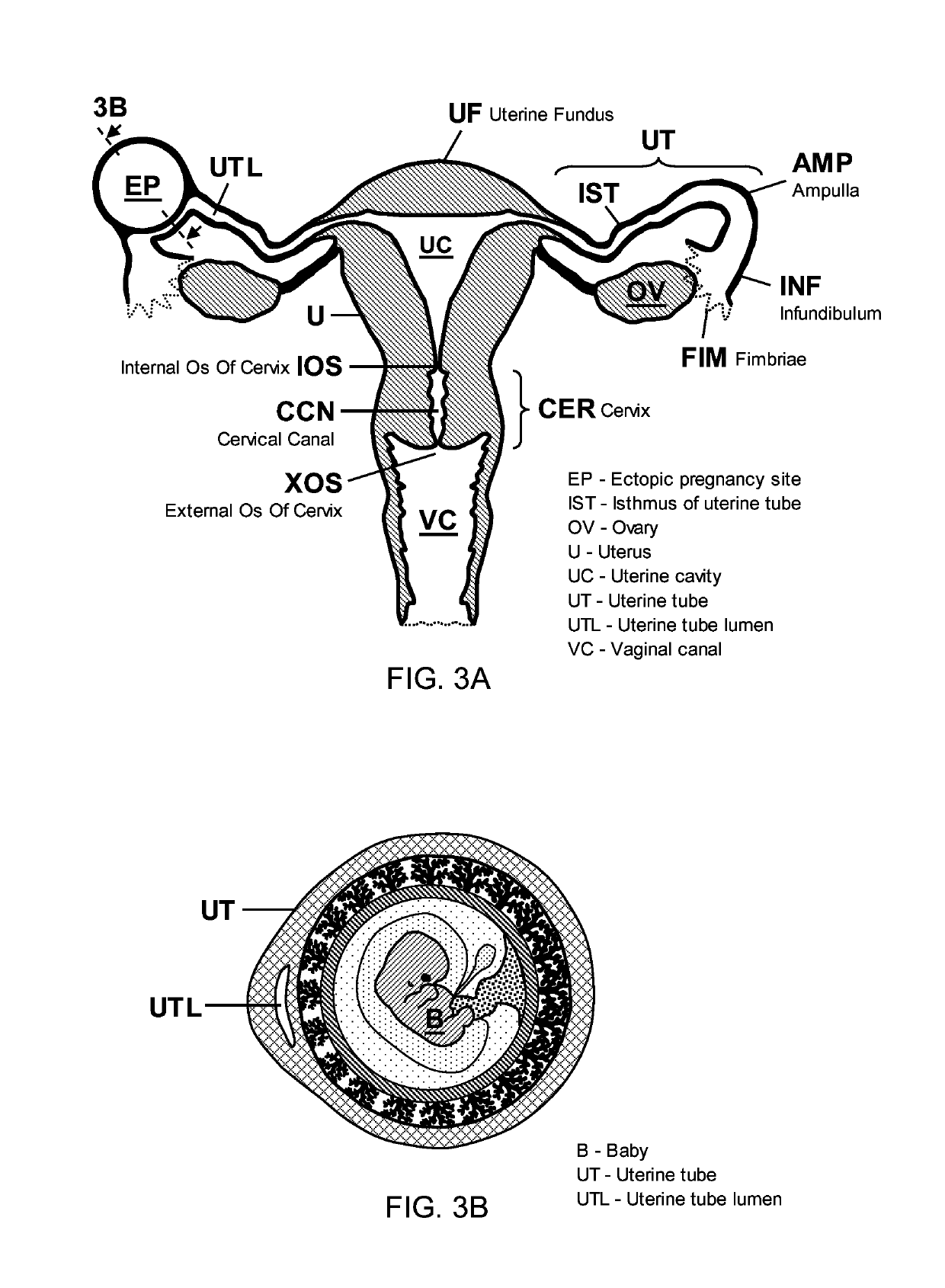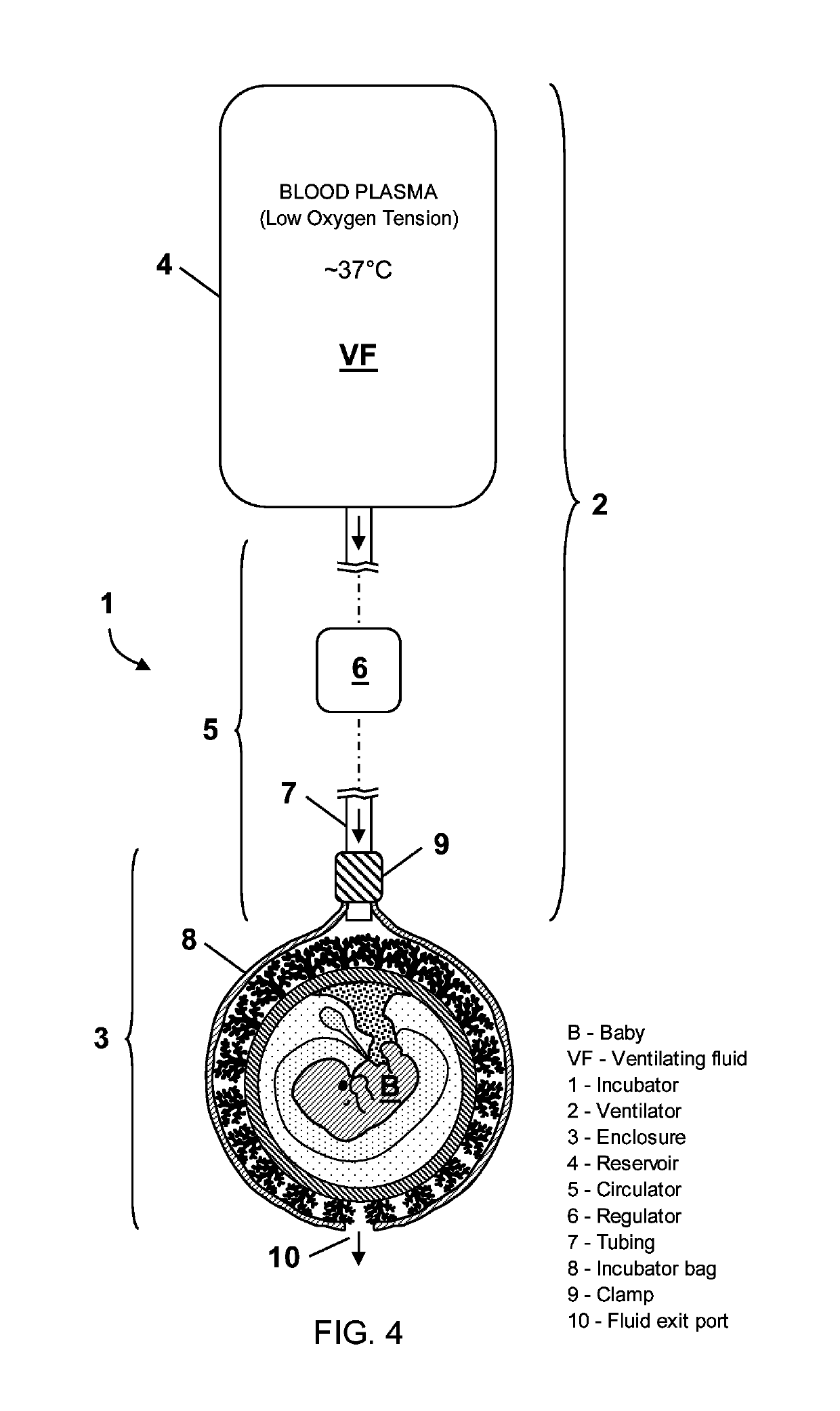Nondestructive means of ectopic pregnancy management
a non-destructive and ectopic technology, applied in the field of incubators for babies, can solve the problems of inability to survive in the ectopic site, limitations of prior, and inability to approach as infeasible, and achieve the effect of preventing any damage to the gestational sac and preventing insult to the baby
- Summary
- Abstract
- Description
- Claims
- Application Information
AI Technical Summary
Benefits of technology
Problems solved by technology
Method used
Image
Examples
example 1
[0300]A water-soluble poly(vinyl alcohol) polymer provided in the form of a thermoplastic filament is extruded by a 3D printer to make the exemplary Easter egg ATC shown in FIG. 9 having the rigidity of a ping pong ball. Owing to water solubility, the nominal degradation rate is within minutes. The degradation may be coating delayed to extend the remanence.
[0301]To extend the remanence of the ATC of Example 1, the ATC is coated with reconstituted silk protein fibroin which has been purified to remove all traces of silk protein sericin, the fibroin having a crystallinity prepared by physical temperature-controlled water vapor annealing and which crystallinity is proportional to an enzyme degradation rate of the coating. The remanence is thus extended by minutes, hours, days, or weeks according to the art. See Hu et al., “Regulation of Silk Material Structure by Temperature-Controlled Water Vapor Annealing,” Biomacromolecules, Vol. 12, No. 5, 2011, pp. 1686-1696.
[0302]Coatings with di...
example 2
[0303]To make the exemplary coin purse ATC shown in FIG. 26 having the flexibility of a soft contact lens, a hyaluronan solution is cross-linked to form a hydrogel solution that is electrospun to form a non-woven fibrous mat which is molded to produce the walls 62 of the ATC having a slit 63 disposed therein. The nominal degradation rate is within hours or days depending on predetermined modifications according to the art.
[0304]Thompson teaches an embryo transfer arrangement comprising a balloon formed of a biodegradable film of hyaluronic acid to press the baby between the balloon and a wall of the uterine cavity; the balloon dissolves after a period of 12 to 24 hours to leave the baby implanted in the uterine wall. See U.S. Pat. No. 6,010,448; column 6, lines 10-40; FIGS. 8, 9, 10, and 11. Notably, the baby according to Thompson is outside the balloon, unlike the baby according to the present invention, who is inside a balloon or other ATC capsule structure.
[0305]The ATC of Exampl...
PUM
| Property | Measurement | Unit |
|---|---|---|
| spacing distance | aaaaa | aaaaa |
| distance | aaaaa | aaaaa |
| temperature | aaaaa | aaaaa |
Abstract
Description
Claims
Application Information
 Login to View More
Login to View More - R&D
- Intellectual Property
- Life Sciences
- Materials
- Tech Scout
- Unparalleled Data Quality
- Higher Quality Content
- 60% Fewer Hallucinations
Browse by: Latest US Patents, China's latest patents, Technical Efficacy Thesaurus, Application Domain, Technology Topic, Popular Technical Reports.
© 2025 PatSnap. All rights reserved.Legal|Privacy policy|Modern Slavery Act Transparency Statement|Sitemap|About US| Contact US: help@patsnap.com



